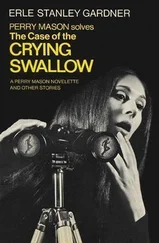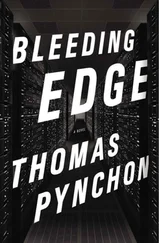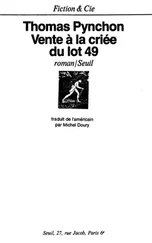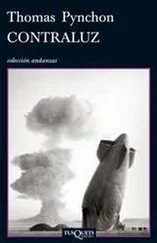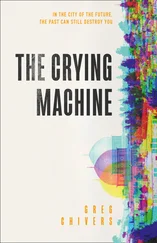Robert Scurvham had founded, during the reign of Charles I, a sect of most pure Puritans. Their central hangup had to do with predestination. There were two kinds. Nothing for a Scurvhamite ever happened by accident, Creation was a vast, intricate machine. But one part of it, the Scurvhamite part, ran off the will of God, its prime mover. The rest ran off some opposite Principle, something blind, soulless; a brute automatism that led to eternal death. The idea was to woo converts into the Godly and purposeful sodality of the Scurvhamite. But somehow those few saved Scurvhamites found themselves looking out into the gaudy clockwork of the doomed with a certain sick and fascinated horror, and this was to prove fatal. One by one the glamorous prospect of annihilation coaxed them over, until there was no one left in the sect, not even Robert Scurvham, who, like a ship's master, had been last to go.
"What did Richard Wharfinger have to do with them?" asked Oedipa. "Why should they do a dirty version of his play?"
"As a moral example. They were not fond of the theatre. It was their way of putting the play entirely away from them, into hell. What better way to damn it eternally than to change the actual words. Remember that Puritans were utterly devoted, like literary critics, to the Word."
"But the line about Trystero isn't dirty."
He scratched his head. "It fits, surely? The 'hallowed skein of stars' is God's will. But even that can't ward, or guard, somebody who has an appointment with Trystero. I mean, say you only talked about crossing the lusts of Angelo, hell, there'd be any number of ways to get out of that. Leave the country. Angelo's only a man. But the brute Other, that kept the non-Scurvhamite universe running like clockwork, that was something else again. Evidently they felt Trystero would symbolize the Other quite well."
She had nothing more then to put it off with. Again with the light, vertiginous sense of fluttering out over an abyss, she asked what she'd come there to ask. "What was Trystero?"
"One of several brand new areas," said Bortz, "that opened up after I did that edition in '57. We've since come across some interesting old source material. My updated edition ought to be out, they tell me, next year sometime. Meanwhile." He went looking in a glass case full of ancient books. "Here," producing one with a dark brown, peeling calf cover. "I keep my Wharfingeriana locked in here so the kids can't get at it. Charles could ask no end of questions I'm too young to cope with yet." The book was titled An Account of the Singular Peregrinations of Dr Diocletian Blobb among the Italians, Illuminated with Exemplary Tales from the True History of That Outlandish And Fantastical Race.
"Lucky for me," said Bortz, "Wharfinger, like Milton, kept a commonplace book, where he jotted down quotes and things from his reading. That's how we know about Blobb's Peregrinations."
It was full of words ending in e's, s's that looked like f's, capitalized nouns, y's where i's should've been. "I can't read this," Oedipa said.
"Try," said Bortz. "I have to see those kids off. I think it's around Chapter Seven." And disappeared, to leave Oedipa before the tabernacle. As it turned out it was Chapter Eight she wanted, a report of the author's own encounter with the Trystero brigands. Diocletian Blobb had chosen to traverse a stretch of desolate mountain country in a mail coach belonging to the "Torre and Tassis" system, which Oedipa figured must be Italian for Thurn and Taxis. Without warning, by the shores of what Blobb called "the Lake of Piety," they were set upon by a score of black-cloaked riders, who engaged them in a fierce, silent struggle in the icy wind blowing in from the lake. The marauders used cudgels, harquebuses, swords, stilettos, at the end silk kerchiefs to dispatch those still breathing. All except for Dr Blobb and his servant, who had dissociated themselves from the hassle at the very outset, proclaimed in loud voices that they were British subjects, and even from time to time "ventured to sing certain of the more improving of our Church hymns." Their escape surprised Oedipa, in view of what seemed to be Trystero's passion for security.
"Was Trystero trying to set up shop in England?" Bortz suggested, days later.
Oedipa didn't know. "But why spare an insufferable ass like Diocletian Blobb?"
"You can spot a mouth like that a mile off," Bortz said. "Even in the cold, even with your blood-lust up. If I wanted word to get to England, to sort of pave the way, I should think he'd be perfect. Trystero enjoyed counter-revolution in those days. Look at England, the king about to lose his head. A set-up."
The leader of the brigands, after collecting the mail sacks, had pulled Blobb from the coach and addressed him in perfect English: "Messer, you have witnessed the wrath of Trystero. Know that we are not without mercy. Tell your king and Parliament what we have done. Tell them that we prevail. That neither tempest nor strife, nor fierce beasts, nor the loneliness of the desert, nor yet the illegitimate usurpers of our rightful estate, can deter our couriers." And leaving them and their purses intact, the highwaymen, in a cracking of cloaks like black sails, vanished back into their twilit mountains.
Blobb inquired around about the Trystero organization, running into zipped mouths nearly every way he turned. But he was able to collect a few fragments. So, in the days following, was Oedipa. From obscure philatelic journals furnished her by Genghis Cohen, an ambiguous footnote in Motley's Rise of the Dutch Republic, an 8o-year-old pamphlet on the roots of modern anarchism, a book of sermons by Blobb's brother Augustine also among Bortz's Wharfingeriana, along with Blobb's original clues, Oedipa was able to fit together this account of how the organization began:
In 1577, the northern provinces of the Low Countries, led by the Protestant noble William of Orange, had been struggling nine years for independence from Catholic Spain and a Catholic Holy Roman Emperor. In late December, Orange, de facto master of the Low Countries, entered Brussels in triumph, having been invited there by a Committee of Eighteen. This was a junta of Calvinist fanatics who felt that the Estates-General, controlled by the privileged classes, no longer represented the skilled workers, had lost touch entirely with the people. The Committee set up a kind of Brussels Commune. They controlled the police, dictated all decisions of the Estates-General, and threw out many holders of high position in Brussels. Among these was Leonard I, Baron of Taxis, Gentleman of the Emperor's Privy Chamber and Baron of Buysinghen, the hereditary Grand Master of the Post for the Low Countries, and executor of the Thurn and Taxis monopoly. He was replaced by one Jan Hinckart, Lord of Ohain, a loyal adherent of Orange. At this point the founding figure enters the scene: Hernando Joaquin de Tristero y Calavera, perhaps a madman, perhaps an honest rebel, according to some only a con artist. Tristero claimed to be Jan Hinckart's cousin, from the Spanish and legitimate branch of the family, and true lord of Ohain-rightful heir to everything Jan Hinckart then possessed, including his recent appointment as Grand Master.
From 1578 until Alexander Farnese took Brussels back again for the Emperor in March, 1585, Tristero kept up what amounted to a guerrilla war against his cousin-if Hinckart was his cousin. Being Spanish, he got little support. Most of the time, from one quarter or another, his life was in danger. Still, he tried four times to assassinate Orange's postmaster, though without success.
Jan Hinckart was dispossessed by Farnese, and Leonard I, the Thurn and Taxis Grand Master, rein-stated. But it had been a time of great instability for the Thurn and Taxis monopoly. Leery of strong Protestant leanings in the Bohemian branch of the family, the Emperor, Rudolph II, had for a time withdrawn his patronage. The postal operation plunged deeply into the red.
Читать дальше


